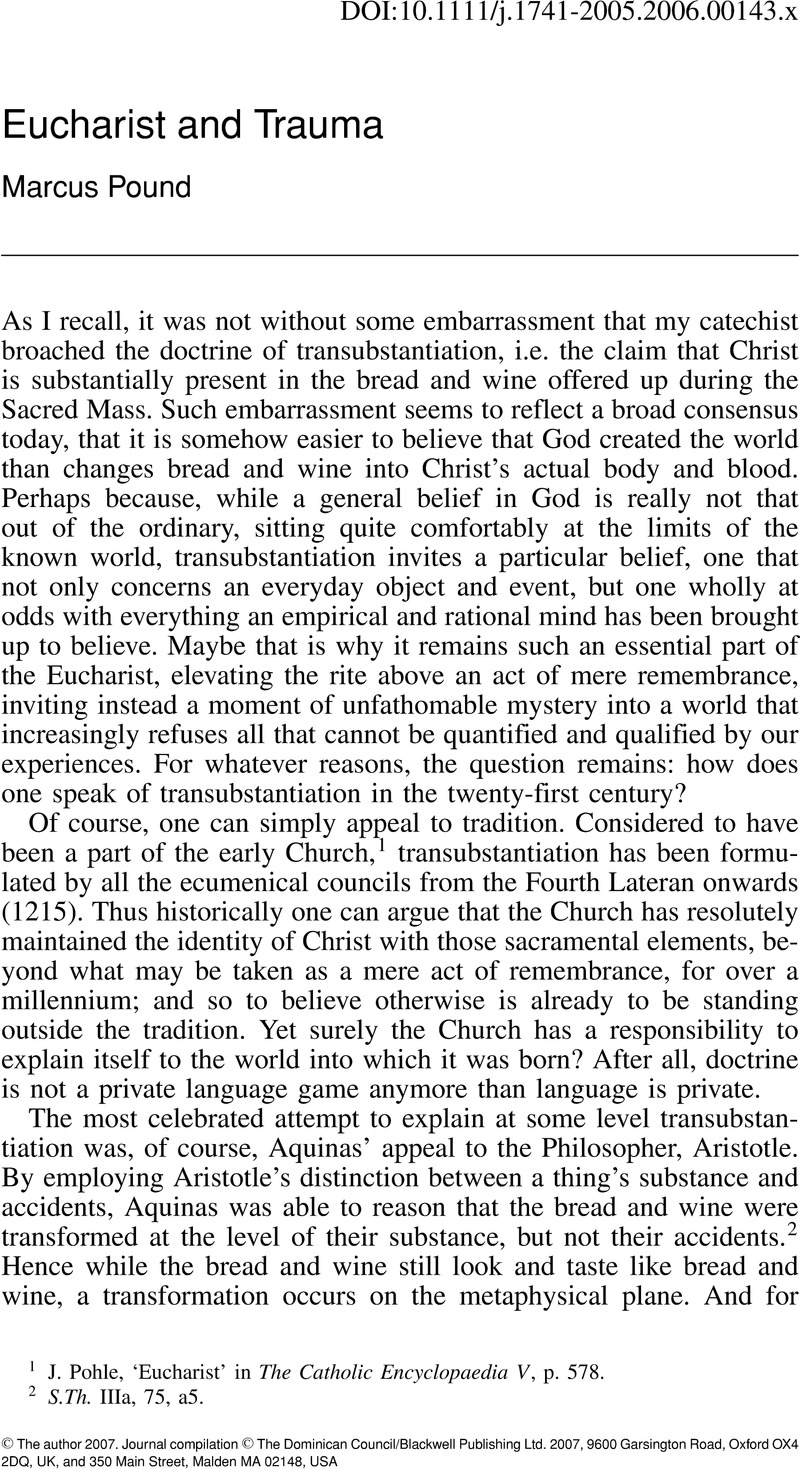No CrossRef data available.
Article contents
Abstract

- Type
- Catholic Theological Association 2006 Conference Papers
- Information
- Copyright
- Copyright © The author 2007. Journal compilation © The Dominican Council/Blackwell Publishing Ltd. 2007
References
1 J. Pohle, ‘Eucharist’ in The Catholic Encyclopaedia V, p. 578.
2 S.Th. IIIa, 75, a5.
3 Freud, S., ‘Totem and Taboo’ in The Standard Edition of the Complete Psychological Works of Sigmund Freud, Vol XIII, (London, The Hogarth Press, 1962) pp. 1–162Google Scholar.
4 Lacan, J., The Seminars of Jacques Lacan, Book 1: Freud's Papers on Technique, 1953–4, (New York and London, W.W. Norton and Company, 1988) p. 66Google Scholar.
5 Kierkegaard, S., The Concept of Anxiety (Princeton, Princeton University Press, 1980) p. 87Google Scholar.
6 Jung, C., The Essential Jung, ed. by Storr, Anthony (London, Fontana Press, 1998) p. 18Google Scholar.
7 Tanner, N., ed., Decrees of the Ecumenical council, Vol 1 (London, Sheed & Ward and Georgetown University Press, 1990) p. 86Google Scholar.
8 Pickstock, C., After Writing: On the Liturgical Consummation of Philosophy (Oxford, Blackwell, 1998) p. 254Google Scholar. Italics in the original.
9 Zizek expresses this point in terms of the difference between the ‘real as impossible’ and the ‘impossible as real’. Zizek, Slavoj and Daly, Glyn, Conversations with Zizek (Cambridge, Polity, 2004) p. 70Google Scholar.
10 Farrell, K., Post-traumatic Culture: Injury and Interpretation (Baltimore and London, John Hopkins University Press, 1998) p. 18CrossRefGoogle Scholar.
11 Goscinny, R. and Uderzo, A., Asterix and the Big Fight, trans. Bell, Anthea and ridge, Derek Hock (UK, Hodder Children's Books, 1974)Google Scholar.
12 Wagner, Parsifal.
13 J. Lacan, Op. cit., p. 197.
14 Ibid.
15 Lacan, J. (crits, A Selection, trans. Fink, Bruce (New York and London, W.W. Norton and Company, 2002) p. 84Google Scholar.
16 For example, ‘I will be rested if I sleep now’. Being rested (the past) is dependent on the contingency of the future (i.e. getting enough sleep). And this is what is at stake in analysis, going back and changing one's past, because one way to describe a neurosis is in terms of being trapped in a past event, destined to endlessly repeat it.
17 Heidegger, M., Being and Time, trans. McQuarrie, John and Robinson, Edward (Oxford, Blackwell, 1962) p. 387Google Scholar.
18 S. Kierkegaard, Op. cit., p. 87.




